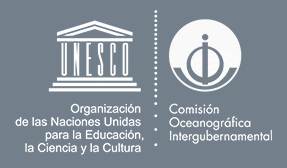Displaying 893 results.
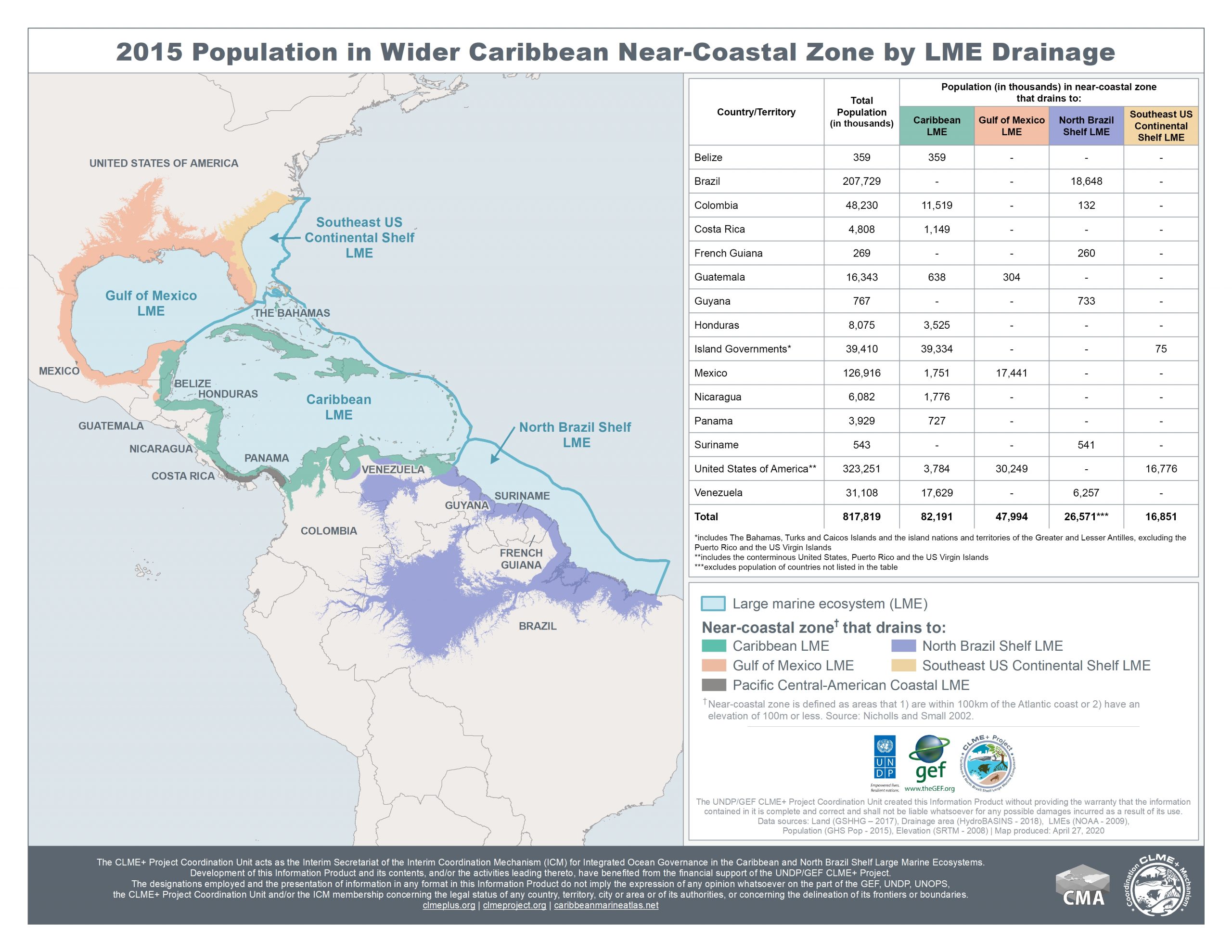
Population in Wider Caribbean Near-Coastal Zone by LME Drainage
Author: CLME+ PCU
Year: 2020
Keywords:
 16
16
 1
1

 Report issue
Report issue

Population within 100km of the Wider Caribbean Coast by LME Drainage
Author: CLME+ PCU
Year: 2020
Keywords:
 11
11
 1
1

 Report issue
Report issue
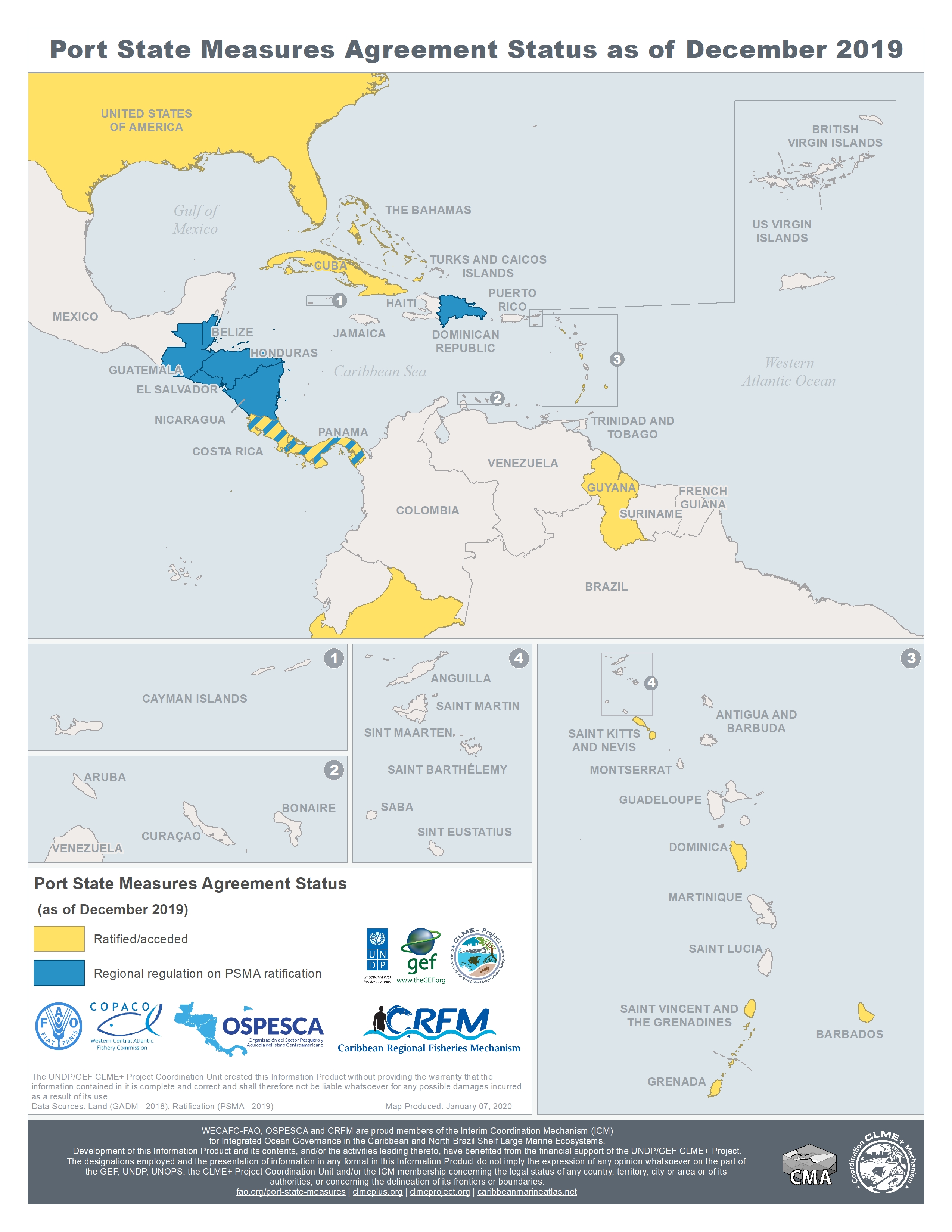
Port State Measures Agreement Status Map
This map illustrates countries that have ratified or acceded to the Port State Measures Agreement as of December 2019. It also shows where regional regulation on PSMA has been ratified.
Author: FAO WECAFC
Year: 2019
Keywords:
 11
11


 Report issue
Report issue
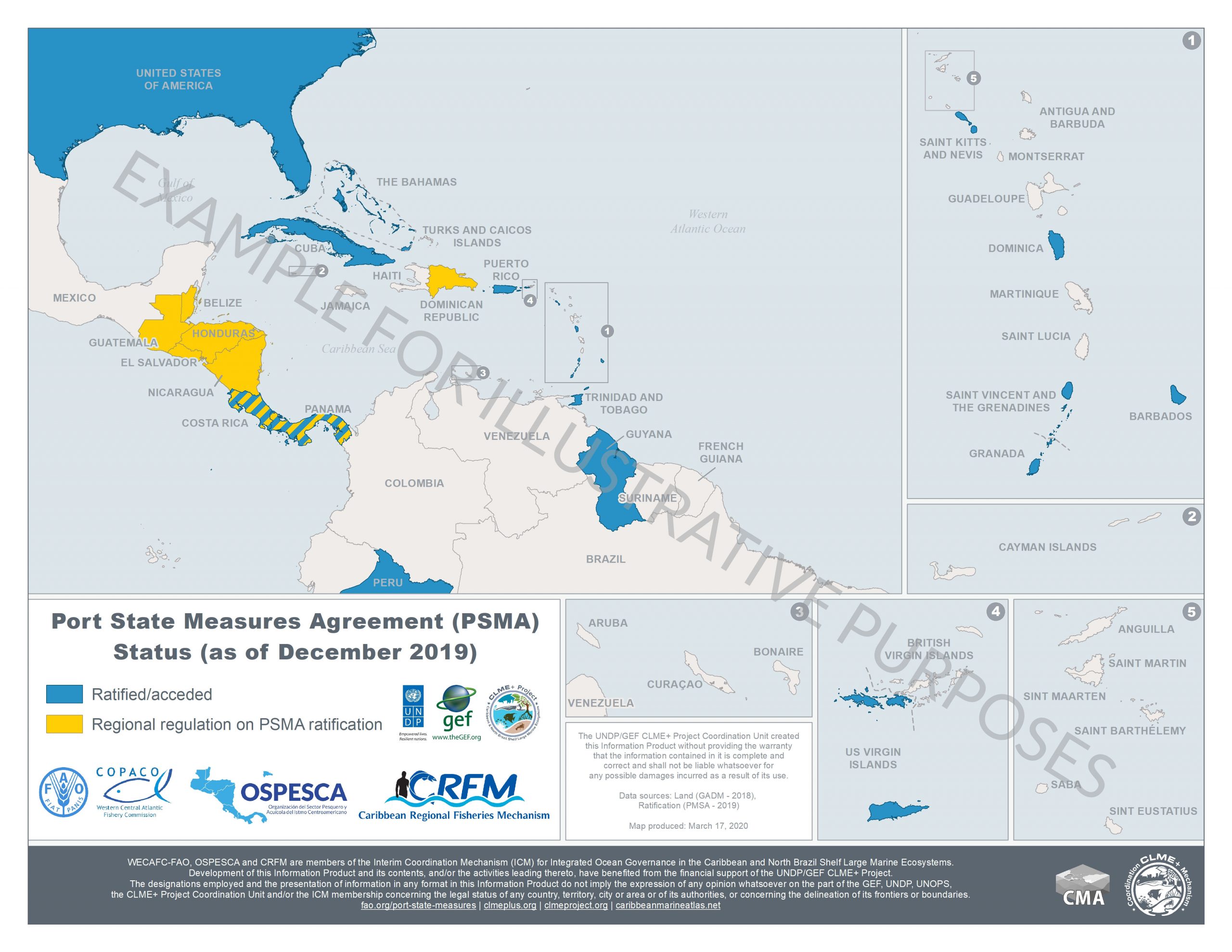
Port Status Measures Agreement (PSMA) Status (as of December 2019)
Author: CLME+ PCU
Year: 2019
Keywords: Port Status Measures Agreement (PSMA) Status (as of December 2019)
 6
6


 Report issue
Report issue
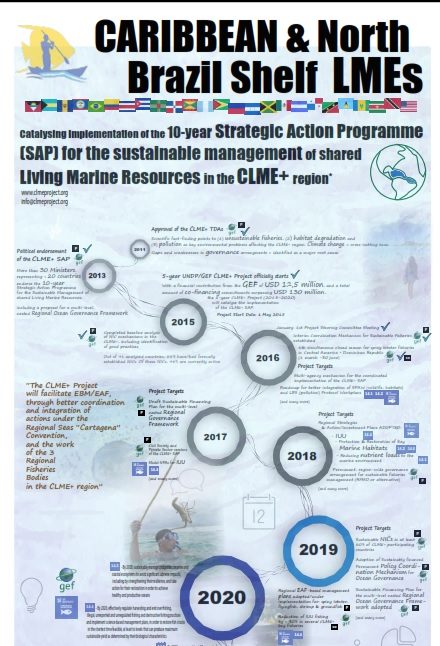
Poster/Infographic with the timeline of CLME/CLME+ Project implementation & milestones
This infographic poster presents a timeline of the CLME/CLME+ Project implementation & milestones.
Author: CLME+ PCU
Year: 2016
Keywords:
 6
6


 Report issue
Report issue
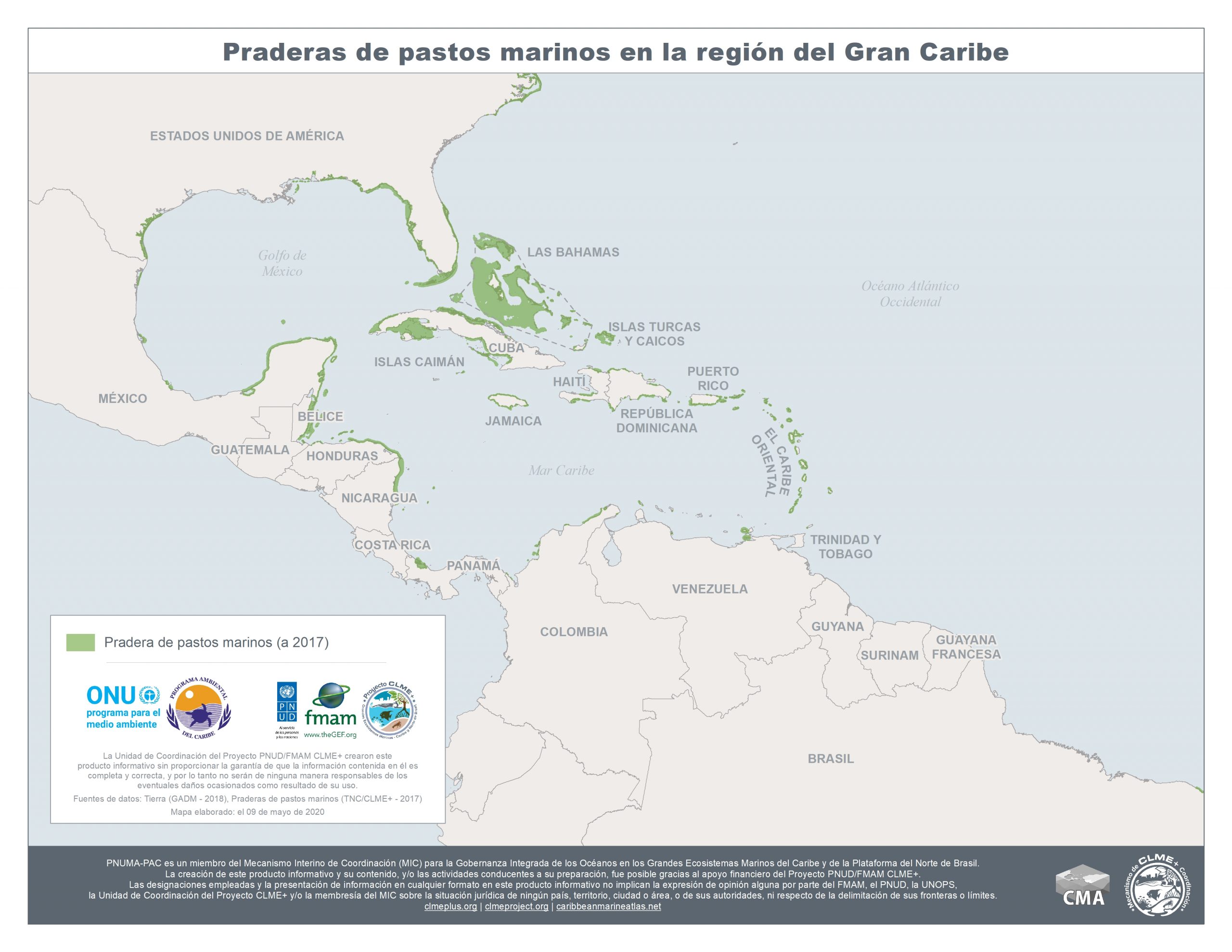
Praderas de pastos marinos en la región del Gran Caribe
Author: CLME+ PCU
Year: 2017
Keywords: Praderas de pastos marinos en la región del Gran Caribe
 4
4


 Report issue
Report issue
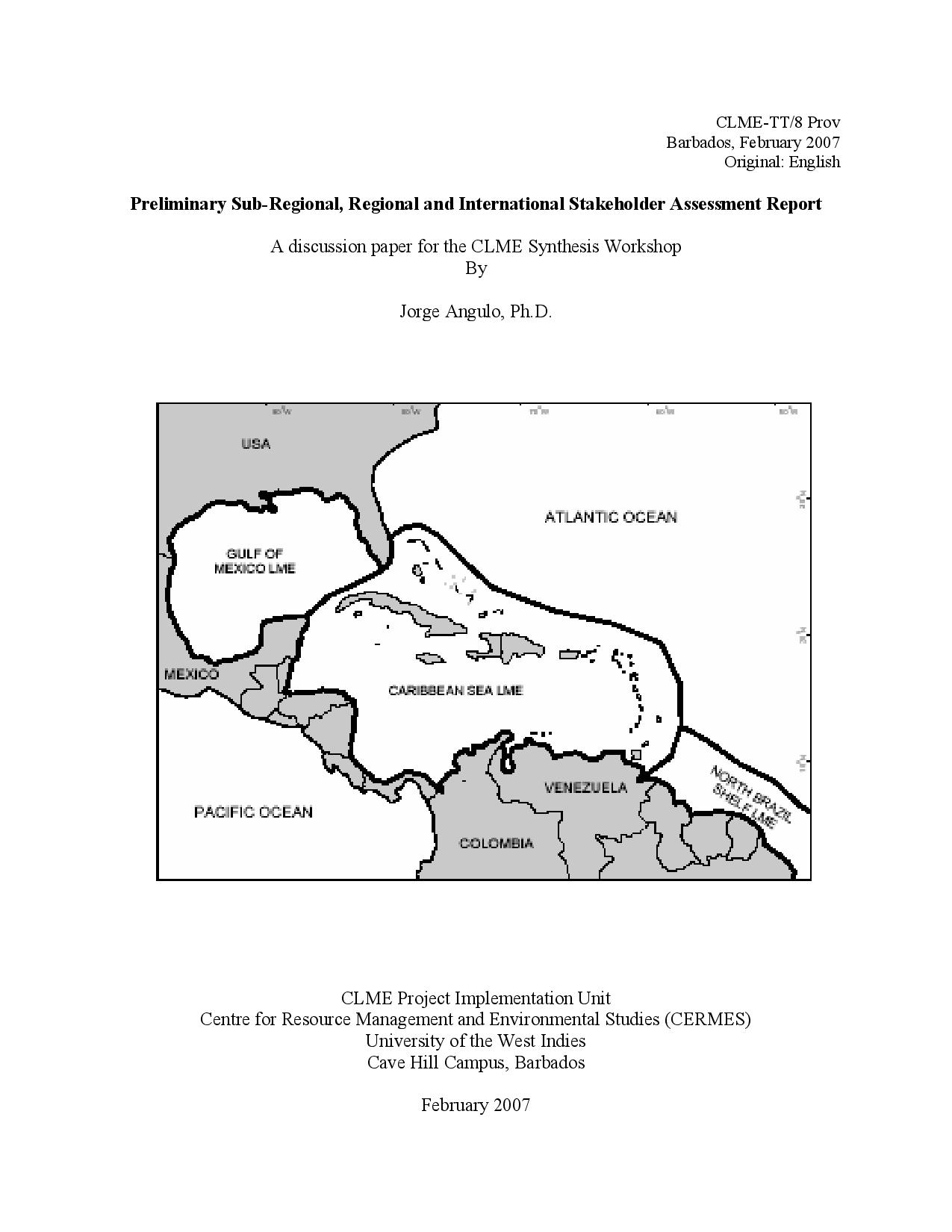
Preliminary Sub-Regional, Regional and International Stakeholder Assessment Report: A discussion paper for the CLME Synthesis Workshop
Author: Angulo, J.
Year: 2007
Keywords:
 4
4


 Report issue
Report issue
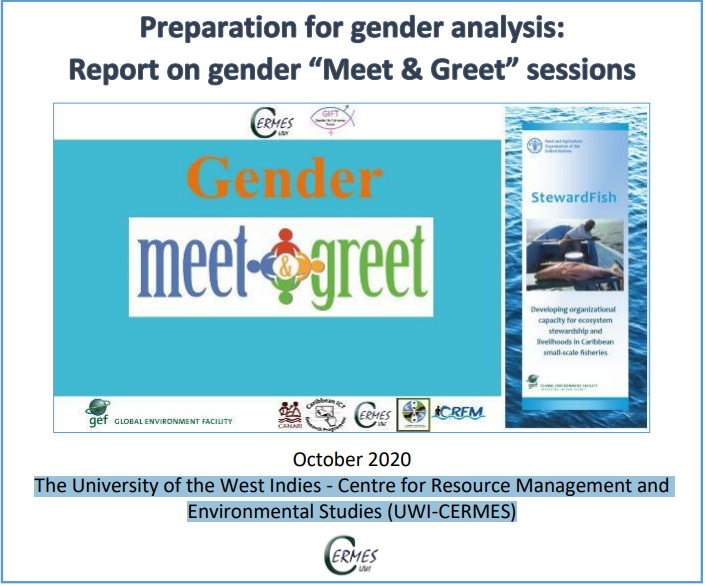
Preparation for Gender – Analysis: Report on Gender “Meet and Greet” sessions
The Gender “Meet & Greet” sessions detailed here represent an occasion in which CERMES has had to utilise an online mode of delivery for a project element based on project country protocols and restrictions associated with the current pandemic. They also provided the opportunity for collaboration and synergy building with FAO Implementing gender aspects within the Small-Scale Fisheries (SSF) Guidelines and the protocol to the Caribbean Community Common Fisheries Policy (CCCFP) for securing SSF (SSF Gender project).
Four Gender “Meet & Greet” sessions with fisherfolk organisation leaders from Jamaica, Barbados,
St. Vincent and the Grenadines, and Guyana were initiated for mutual familiarisation between the
CERMES project team and fisherfolk leaders; to inform fisherfolk leaders of project activities; and to
gain support for the upcoming gender analyses required for the identification of capacity gaps of
men and women, especially youth, in relation to fisherfolk leadership. These StewardFish sessions
were deliberately named “Meet & Greet” for the purpose of attracting a sizeable number of
fisherfolk leaders to participate in informal, but relevant and important, preludes to the gender
analyses
This “Meet & Greet” model was an overall success in engaging the StewardFish (and SSF Gender)
gender analysis target group and can be replicated for use in future project activities. It is highly
likely that CERMES will have to implement similar sessions for planned gender analysis individual and
group interviews and there is no doubt that gathering information via this means will be successful.
Author: UWI - CERMES
Year: –2021
Keywords:
 4
4


 Report issue
Report issue
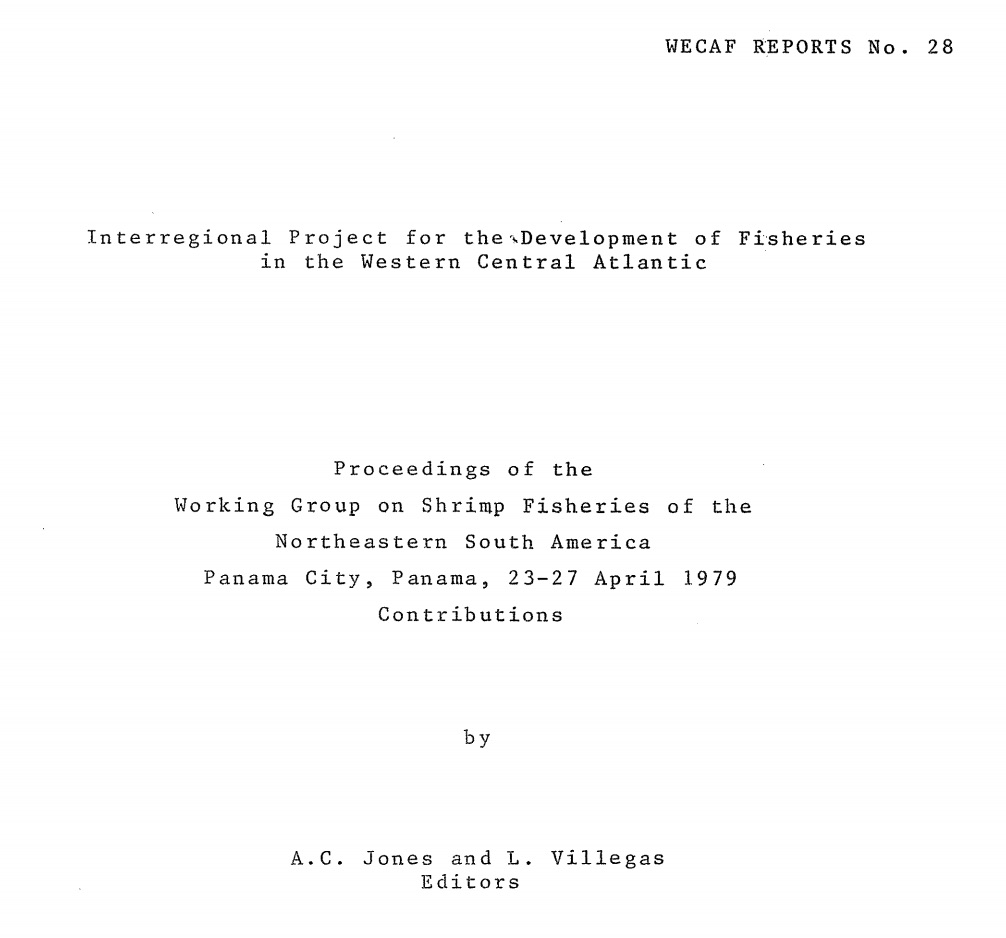
Proceedings of the Working Group on Shrimp Fisheries of the Northeastern South America, Panama – Contributions (1979)
The working group reviewed the current status of the shrimp resource and fisheries, as requested. Some signs, but not conclusive indications of overfishing of the stocks were noted. A general conclusion is that the shrimp stocks of this area appear to be about fully utilized but that good management can preserve the biological and economic viability of the fishery. The group suggested a number of management goals and regulatory options for consideration by the countries concerned. Achievement of the task of principal concern to the group, that of providing scientific advice for fishery management, is dependent on improving the available scientific database. In this regard, the group made specific recommendations. Implementation of these recommendations will be necessary if further scientific predictions on the status of the stock are required.
Author: FAO
Year:
Keywords: Shrimp fisheries, Northeastern South America Shrimp and groundfish, shrimp
 4
4


 Report issue
Report issue
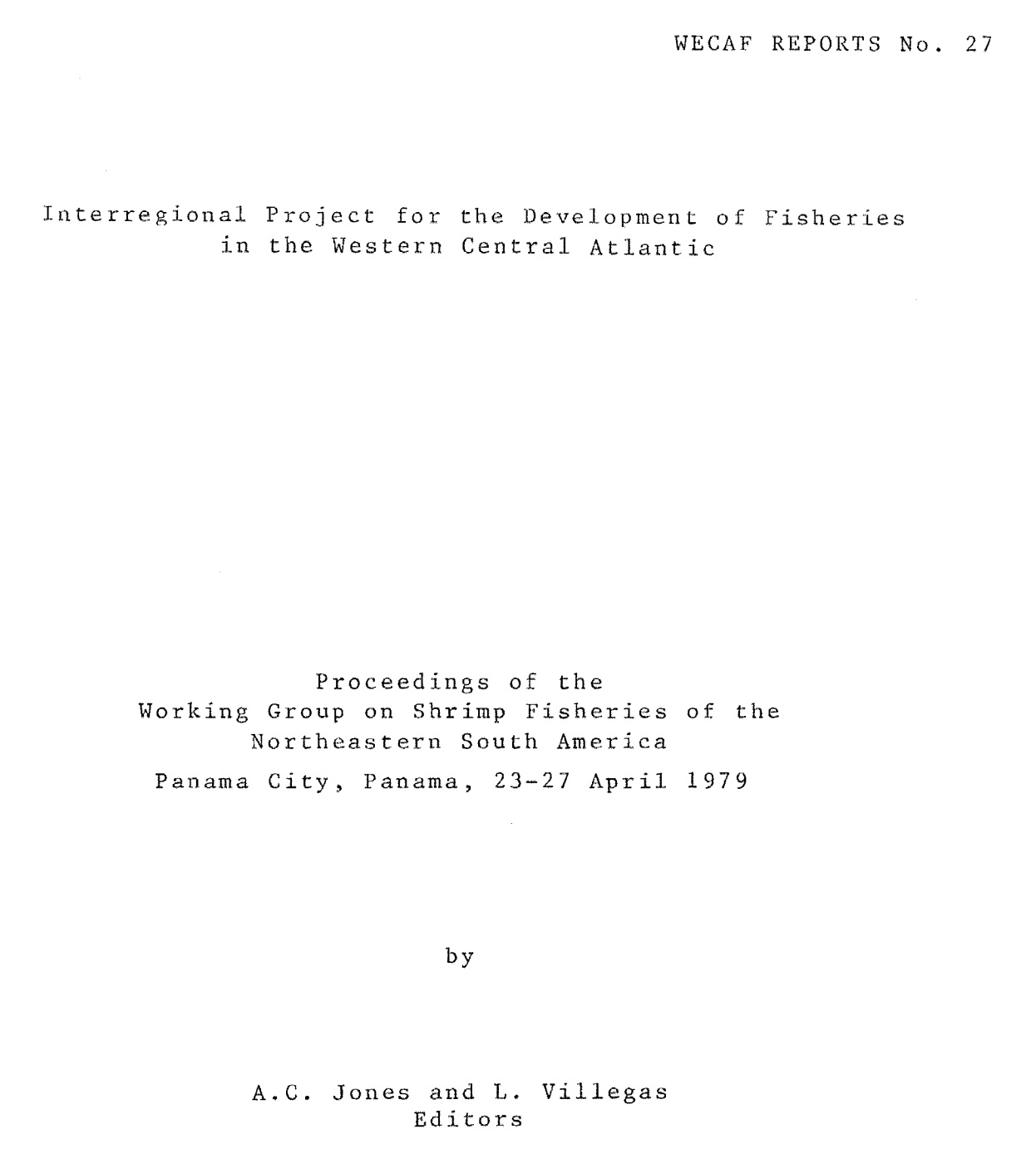
Proceedings of the working group on shrimp fisheries of the Northeastern South America, Panama City, 23 – 27 April 1979, Report of the Meeting National Reports
The Working Group reviewed the current status of the shrimp resource and fisheries. A general conclusion is that the shrimp stocks of this area appear to be about fully utilized but that good management can preserve the present biological and economic viability of the fishery. The group suggested a number of management goals and regulatory options for consideration by the countries concerned.
Author: FAO
Year:
Keywords: Shrimp and groundfish working group, shrimp, groundfish Shrimp and groundfish
 5
5


 Report issue
Report issue










